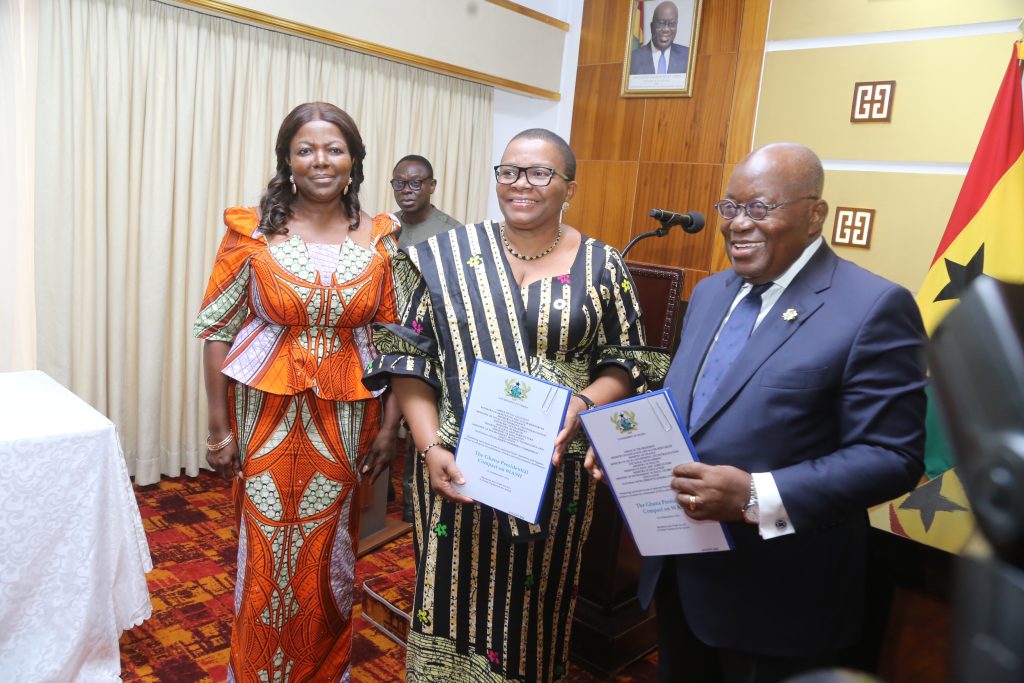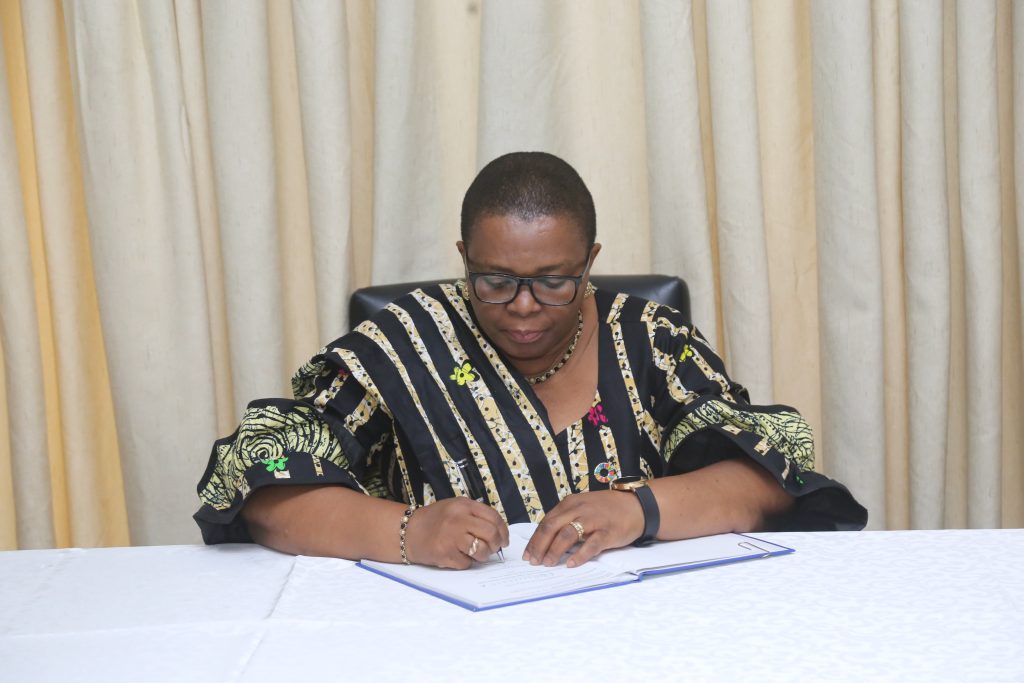By Ken Sackey
Accra, Aug. 29, 2024 – President Nana Addo Dankwa Akufo-Addo, on Wednesday signed a historic Presidential Compact on Water Sanitation and Hygiene (WASH), as part of the government’s commitment to improving public health and increasing climate resilience.
The WASH Compact is a strategic multi-stakeholder collaboration agreement that aims to promote equitable development and protect public health while also promoting larger socioeconomic goals.
It reflects the principles for closing the gaps in access to clean water, sanitation, and hygiene services. It will ensure that hard-to-reach communities have access to water, sanitation, and hygiene services.
The President, who signed the Compact during a ceremony at the Jubilee House in Accra, observed that Ghana’s path to deliver potable water to all was far from done, despite the considerable strides made in improving water services throughout the country.
He stated that the signing of the Compact was based on the fundamental understanding that without such essential services, long-term growth would be impossible.
“The journey on which we are embarking is built on the fundamental truth that without WASH services, sustainable development will remain an elusive dream.
“This Compact represents not the start but the continuation and amplification of our efforts; a decisive step to ensure that every citizen, irrespective of their location or circumstance, enjoys sustainable access to these vital services,” he said.
Under the Presidential Compact, the third of its kind in Africa, the government will allocate an estimated US$1.7 billion annually to water, sanitation, and hygiene (WASH) initiatives until 2030.
The funds would ensure that WASH services reached schools, healthcare facilities, and remote communities.
President Akufo-Addo stated that the last seven years of his administration have seen huge investments in water provision, with evident signs of improvement; however, much more work needs to be done.

He said stated that because of his government’s investments, citizens now had access to reliable sources of safe drinking water, and that “the time women and children spend fetching water has been dramatically reduced, allowing them to focus on education and economic activities.”
“Despite the challenges we have faced, we have made notable interventions and achieved significant milestones. In the last seven and a half years, we have successfully expanded access to clean water in both rural and underserved urban areas.
“Today, more of our citizens have access to reliable sources of clean drinking water thanks to the construction and rehabilitation of water treatment facilities across the nation,” he said.
Dr. Dr Ifeoma Esther Charles-Monwuba, Ad Interim, UN Resident Coordinator in Ghana who signed the Compact for the UN, said the development was a commitment on the part of President Akufo-Addo to accelerate progress on Sustainable Development Goals (SDG) 6, which envisages universal access to water and sanitation for Ghana by 2030.
She said the President’s love for the motherland was evident from his sincere efforts to improve the well-being of Ghanaians.
Dr Charles-Monwuba stated that the WASH Compact highlighted the significance of strong governance structures.

“The Government of Ghana’s leadership in fostering these frameworks is commendable. By integrating WASH priorities into national policies and ensuring accountability through clear monitoring and evaluation mechanisms.
“This Compact will significantly enhance the efficiency and effectiveness of service delivery across the country,” she stated.
Madam Lydia Seyram Alhassan, Minister for Sanitation and Water Resources said, “The Compact, signed by the President of the Republic, shows how serious we as a country take WASH issues.”
She said that Ghana brought the Compact to fruition just one year after it was announced as a commitment at the UN 2023 Water Conference.
The Compact will establish a National Sanitation Authority, which will support the government’s efforts to eliminate open defecation by 2030.
Furthermore, Ghana’s national climate strategy will now include building climate-resilient water and sanitation infrastructure and services, ensuring that the country is ready to address the challenges posed by increasing droughts and floods, she said.
The Compact is the result of an extensive consultation process with government agencies, development partners, the academic community, and local civil society organizations.
It is supported, under the Heads of State Initiatives, by the Government of the Netherlands, the UK Foreign, Commonwealth and Development Office, UNICEF, the Sanitation and Water for All partnership and IRC WASH.
These partners will serve in an advisory capacity for the Compact’s implementation, providing technical expertise and coordinated advocacy.
GNA